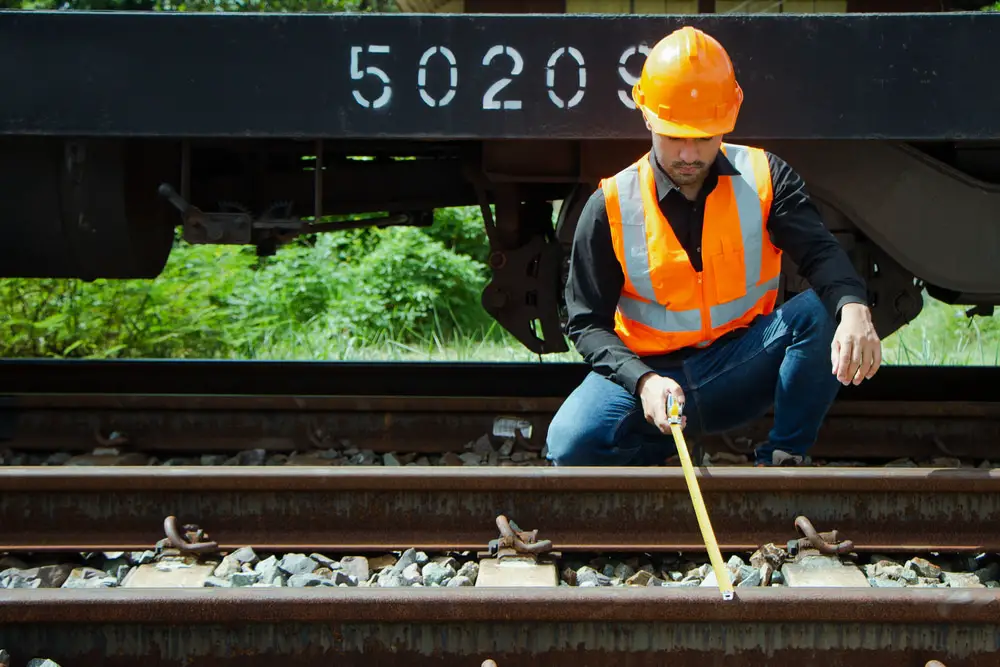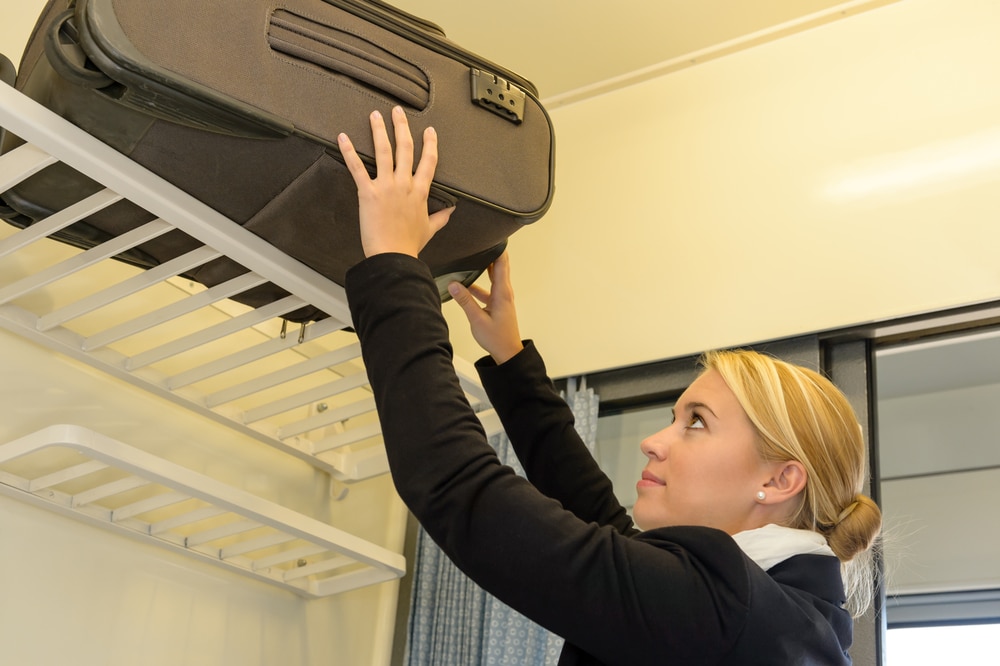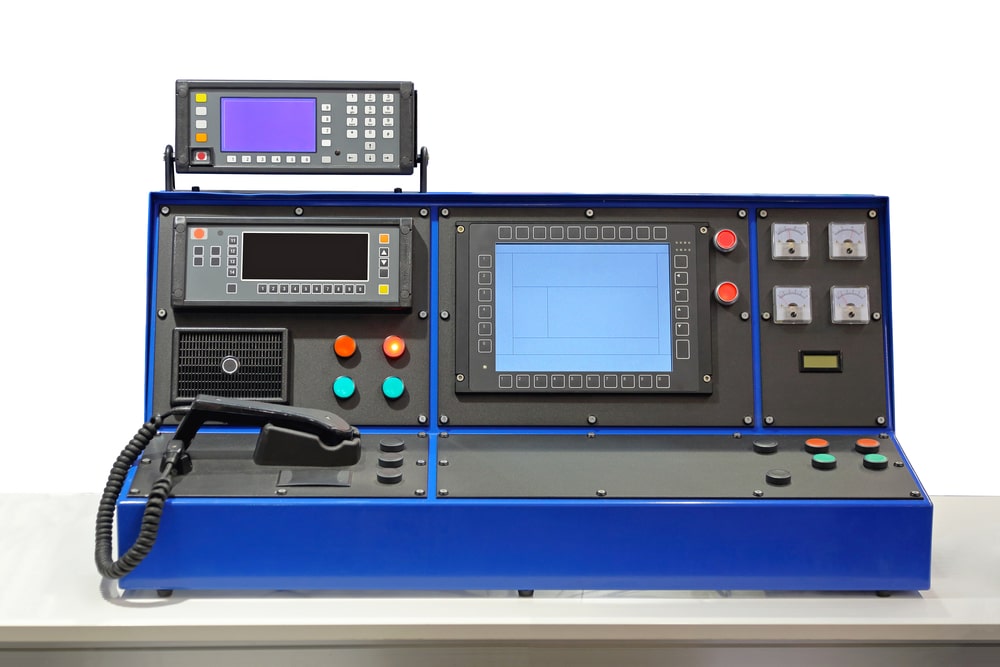Which railroad jobs require no experience? They include train crew, baggage handlers, brakemen, train dispatchers, and train conductors. But, you may need other skills and qualifications to land these jobs. Let’s talk about it.

There are so many reasons why people want to work for the railroad. Who wouldn’t want to travel and see scenic views while working? It’s a great perk.
Some people also want to try out railroading because of the job’s benefits. The industry is known to have some of the highest wages and good retirement plans in America.
And of course, there are some that find railroading to be their passion. ( like me!)
But, what if you don’t have any experience at all in working for the railroad? Can you still apply?
Absolutely, you can. This is also one of the best things about the industry. There are numerous jobs that don’t require experience.
And in some cases, you don’t even need a college degree. This is because most railroad companies offer in-house training. They teach you everything you need to know on the job.
All you have to do is submit an application. If the company sees you as a good fit, you take all the necessary pre-employment tests.
You may also undergo some interviews and screenings. From here, you undergo training and go about your job thereafter.
But it isn’t as easy as it sounds. Companies will essentially accept those who have qualified skills and the right attitude.
However, railroading takes hard work and a deep appreciation for the business. And as with any job, it comes with its own set of challenges.
This is especially true if you want to make it your lifetime career. We’ll tackle more on this later.
So, if you want to get into railroading without any experience, here are the jobs you can apply for:
6 Railroad Jobs That Require No Experience
Take note that all railroad companies are different. The overall application process and requirements will still depend on the company.
Here are the railroad jobs that mostly require no experience, and their job descriptions:
Train Crew
The train crew is essentially responsible for the comfort and security of passengers.
Sometimes, they help the train conductor with queries and safety checks.
Some train crew members also handle selling and giving food to passengers.
The tasks mainly depend on the job you applied for, or what was assigned to you.
So let’s say you’re a sleeping car attendant on Amtrak. Here, you will attend to sleeper car passengers to accommodate their requests and queries.
You will also be responsible for converting their accommodations from day to night. This includes turning the lights off and on, providing daily refreshments, and maintaining restrooms.
Other examples of train crew positions include:
- Cook or train chef
- Customer service
- General train maintenance
- Passenger car attendant
- Station services staff
- Dining crew
- Custodial staff
Most of these jobs do not require any prior railroad experience. The company will provide you with training as you go.
However, they might look for certain qualities among applicants. For instance, you may need to have good customer service skills.
And if you’re applying for the kitchen, you should have a basic grasp of cooking, of course.

Baggage Handlers
Baggage handlers are also a passenger railroad job. As the name states, baggage handlers handle passenger bags.
They assist the passengers in loading and unloading their luggage from compartments.
Some also use baggage carts and trolleys to bring baggage to the train depot.
There are usually 1-3 baggage handlers on a passenger train. This depends on how many passengers there are that day and the length of the train too.
Naturally, more passengers require more baggage handlers. This way, passengers don’t have to wait so long for bag assistance.
And once they’re done assisting bags, baggage handlers do other tasks too. Some assist the dining crew with distributing food. Others help the train conductor in checking passenger tickets.
A baggage handler’s salary does not match up to a train conductor or signal operator. But, they still receive a fair wage, also higher than other railroad jobs.
For instance, an Amtrak Baggage Handler makes around $46,500. This is 70% more than the average national wage.
This job also requires standing and carrying bags a whole lot. So in essence, a baggage handler should be physically fit.
Brakeman
In the era of steam trains, the brakeman’s main job was to physically stop the wheels by pulling the brakes. And that’s why they’re called brakemen. But they don’t have to do that anymore with today’s modern trains.
Now, they are in charge of the controls and switchboards that regulate the train’s brakes.
Other responsibilities of brakemen include:
- Coupling and uncoupling
- Throwing track switches
- Inspect and fix air hoses
- Journal boxes
Some brakemen also fall under train crew, which requires them to travel between stations.
A high school diploma is often required for employment as a train brakeman. The company will usually sponsor or conduct your training for this job too.
The training includes classroom education and hands-on practice. This may also take longer, about 2-3 months, depending on the company.
Good communication skills and mechanical aptitude are essential for this position. And railroad companies may also need you to take hearing and vision tests.
I’m glad I’m not applying these days, the old eyes and ears are a bit older than they used to be!
This job can additionally be more physically demanding. Therefore, you need good stamina. Expect to put in long shifts with irregular schedules as well.

Train Dispatcher
The train dispatcher’s job is to make sure that the train reaches its destination safely and timely. They’re somehow similar to air traffic controllers.
They communicate which tracks to pass, and when they should pass them.
And they use communication gear and computers to do this. Other specific responsibilities of a train dispatcher include:
- Ensuring all railroad activities adhere to FRA regulations
- Understand the daily timetable of trains
- Communicate with other train staff regarding changes in weather
- Track the train’s movements
- Control the track signals and switches
A lot of work relies on the train dispatcher. One incorrect order may lead to consequences. Therefore, communication skills (both written and verbal) are very important here.
Train dispatchers also need problem-solving and reasoning competencies. And finally, they should be computer literate as they’ll be working with a lot of equipment.
Training will be provided for this position. However, having basic knowledge about train operations can really boost your changes.
Moreover, most class I companies like CSX prefer those with a Bachelor’s Degree.
And finally, all train dispatches should take and pass dispatcher tests annually.
Utility Clerk
Utility Clerks do not work on the train itself. Instead, they work in an office setting. But, this is a great way to gain experience and exposure.
This job will help you learn more about how the railroad workings. It’s surely a good stepping stone for advancing your career in the industry.
A utility clerk’s duties include assisting with the procurement of supplies. They ensure that the supplies are delivered to the right trains.
They also fill out paperwork and put up notices. Somewhat like a train’s office secretary.
They don’t handle or operate any heavy train machinery. However, utility clerks learn how it works and how to maneuver around them.
After years of experience, you can move to another railroad career path.
Some common jobs people apply for after being a utility clerk are:
- Train crew
- Mechanical service operator
- Track laborer
- Material handler

Train Conductors
The everyday duties of a railway conductor revolve around ensuring that the train arrives at its location on schedule.
The conductor is in charge of instructing the train crew, coordinating their schedules, and more.
They’re also responsible for the security of the train’s passengers. Other duties include:
- Checking train tickets
- Collecting payments from passengers
- Announcing stops
- Observing the railways for signals
Train conductors really juggle from task to task. And that’s one of the reasons why they’re one of the highest-paid railroad jobs.
Companies don’t usually require a bachelor’s degree to train conductors. Some companies like Canadian Pacific also don’t also require experience.
While others require at least two to three years of working in the industry.
3 Important Things To Know Before Applying For A Railroad Job
If you’re just starting out as a complete beginner, there are some things you should know.
Don’t get so caught up in all the grandeur. Sure, traveling while working is an awesome perk. And yes, you can earn a better salary on the railroad.
But, there are some challenges in railroading and these challenges aren’t for everyone, either.
There’s a reason why railroad jobs are among the most well-respected careers.
So, here are some things you should consider before applying:
1. Patience, Patience!
You need to have a lot of patience if you want to apply and work on the railroad. Companies surely receive hundreds to thousands of applications daily.
So, don’t expect them to get back to you right away. Sometimes, it might take up to six months before they respond.
And don’t lose hope if they don’t get back to you immediately. If you’re really keen on working in the industry, keep applying.
Be ready for calls, too.
2. Big Lifestyle Change
One of the biggest dealbreakers for new railroaders is the drastic lifestyle change.
Expect to work really long hours when you work for the railroad. This is especially true for Class I companies. You can work for as long as 12 hours per day!
The company can also call you into work at any time of the day. You can even work on weekends and holidays.
There are rest days, especially after every trip. But, you can’t just take a leave, like how you do in a corporate setting. Ultimately, it depends on the company you work for.
For instance, if you work as a conductor, they can have you do a “mile out”.
A mile out means that you need to reach maximum miles before taking days off. Let’s say your mile-out reset period is at 4,300 miles.
Once you’ve accumulated those, only then you can take days off. The time frame for these miles averages about 30 days.
Then, you’d be able to take at least four days off before setting off on another journey.
Nevertheless, do expect to miss special events like holidays, family gatherings, and birthdays. Don’t demand a perfect work-life balance, because you won’t be getting it here.
3. Slowly But Surely
High salaries are common in the industry. And you can surely land a job having no experience. But, don’t expect nor demand to have something as grand as six digits right away.
Those senior-level jobs train workers that you see have probably worked for years on end. Some even reach working for 10 years.
They’ve earned their spot in the company after years. If you’d really want to land a high six-digit salary and become seniority in the train, you have to put in the work.
One good thing about the railroad industry is that your career path is versatile. When you start out as a utility clerk, you have a lot of choices for advancement.
Another example is brakemen, they can advance to switch operators or locomotive engineers.
You have to work from the ground up, slowly but surely.
Look At The Big Picture
As you can see, being a railroader takes hard work. It also requires a lot of time away from family.
But, the industry pays more than the national average. On top of your salary, you also receive benefits and a good retirement plan.
Railroaders are entitled to the railroad retirement program. Which is different from a regular pension.
This program offers retirement, unemployment, survivor, and sickness benefits for railroaders who worked long in the industry. These benefits also extend to your family.
I think working for the railroad industry requires you to look at the bigger picture. It can surely be challenging.
But, your hard work really does pay off. You can give yourself and your family a good lifestyle.

Which Railroad Jobs Require No Experience: Final Thoughts
The railroad jobs that require no experience include train crew, baggage handlers, brakemen, train dispatchers, utility clerks, and train conductors.
But then again, this is a case-to-case basis.
You may need to have qualified skills and characteristics to get accepted. You also need to understand what working for the railroad entails for you.
But overall, the industry offers great wages, retirement plans, and years of learning.
Best of luck with your railroading career!

